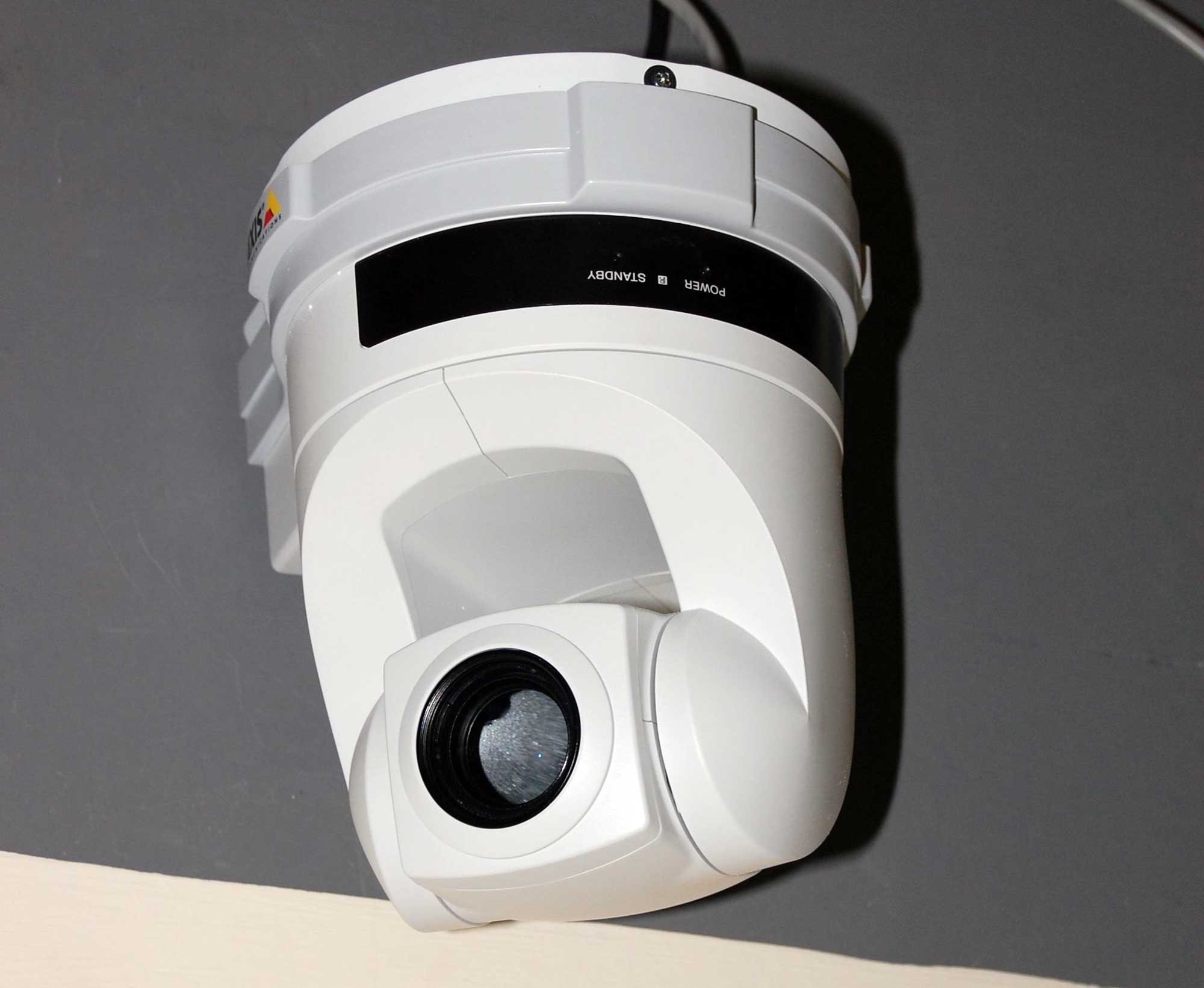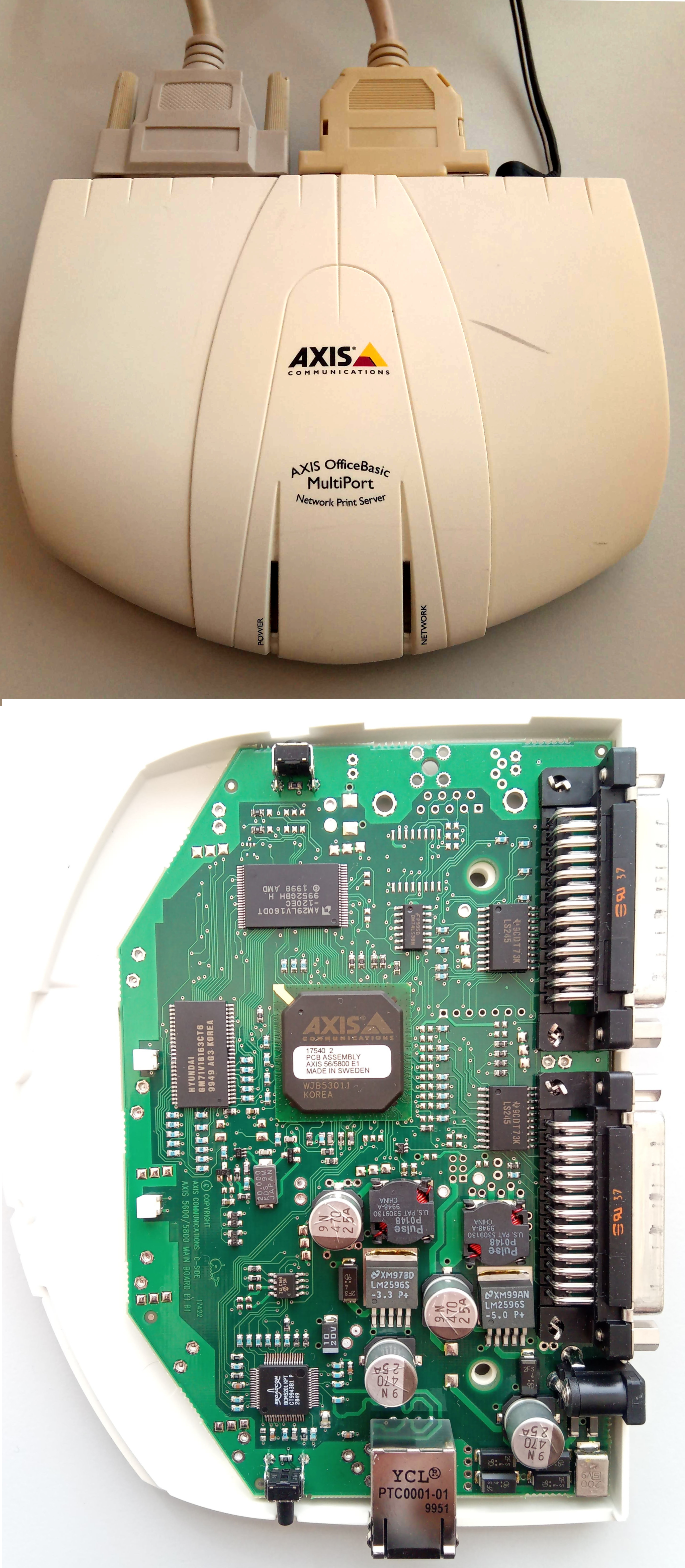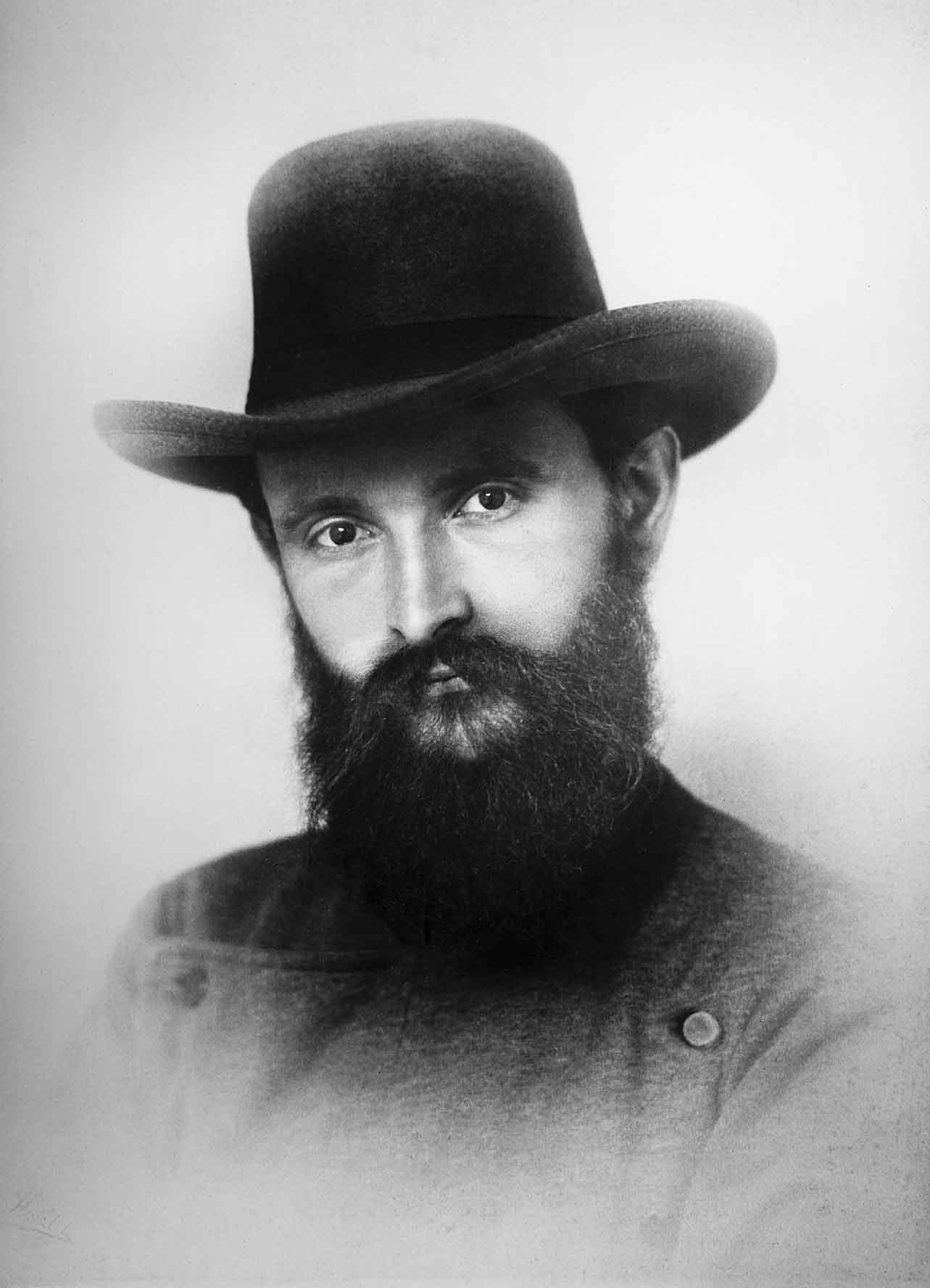|
IP Camera
An Internet Protocol camera, or IP camera, is a type of digital video camera that receives control data and sends image data via an IP network. They are commonly used for surveillance, but, unlike analog closed-circuit television (CCTV) cameras, they require no local recording device, only a local area network. Most IP cameras are webcams, but the term ''IP camera'' or netcam usually applies only to those that can be directly accessed over a network connection. Some IP cameras require support of a central network video recorder (NVR) to handle the recording, video and alarm management. Others are able to operate in a decentralized manner with no NVR needed, as the camera is able to record directly to any local or remote storage media. The first IP Camera was invented by Axis Communications in 1996. History The first centralized IP camera, the ''AXIS Neteye 200'', was released in 1996 by Axis Communications. Although the product was advertised to be accessible from anywher ... [...More Info...] [...Related Items...] OR: [Wikipedia] [Google] [Baidu] |
Axis Communications
Axis Communications AB is a Swedish manufacturer of network cameras, access control, and network audio devices for the physical security and video surveillance industries. History Axis Communications was founded in 1984 by Martin Gren, Mikael Karlsson and Keith Bloodworth in Lund, Sweden.Diane Ritchey, Security Magazine.Security's 25 Most Influential" December 1, 2006. Retrieved November 9, 2011. The company developed and sold protocol converters and printer interfaces for the connection of PC printers in IBM mainframe and mini-computer environments.Security Solutions.Axis celebrates 25 years in the network business" November 1, 2009. Retrieved August 17, 2011. By the end of the 1980s, Axis Communications had opened its first U.S. sales office in Boston, Massachusetts and, in the early 1990s, started shifting its focus away from IBM mainframes towards networking and the TCP/IP protocol. [...More Info...] [...Related Items...] OR: [Wikipedia] [Google] [Baidu] |
NTSC
The first American standard for analog television broadcast was developed by National Television System Committee (NTSC)National Television System Committee (1951–1953), Report and Reports of Panel No. 11, 11-A, 12–19, with Some supplementary references cited in the Reports, and the Petition for adoption of transmission standards for color television before the Federal Communications Commission, n.p., 1953], 17 v. illus., diagrs., tables. 28 cm. LC Control No.:5402138Library of Congress Online Catalog/ref> in 1941. In 1961, it was assigned the designation CCIR System M, System M. In 1953, a second NTSC standard was adopted, which allowed for color television broadcast compatible with the existing stock of black-and-white receivers. It is one of three major color formats for analog television, the others being PAL and SECAM. NTSC color is usually associated with the System M. The only other broadcast television system to use NTSC color was the System J. Since the intr ... [...More Info...] [...Related Items...] OR: [Wikipedia] [Google] [Baidu] |
HTTP
The Hypertext Transfer Protocol (HTTP) is an application layer protocol in the Internet protocol suite model for distributed, collaborative, hypermedia information systems. HTTP is the foundation of data communication for the World Wide Web, where hypertext documents include hyperlinks to other resources that the user can easily access, for example by a mouse click or by tapping the screen in a web browser. Development of HTTP was initiated by Tim Berners-Lee at CERN in 1989 and summarized in a simple document describing the behavior of a client and a server using the first HTTP protocol version that was named 0.9. That first version of HTTP protocol soon evolved into a more elaborated version that was the first draft toward a far future version 1.0. Development of early HTTP Requests for Comments (RFCs) started a few years later and it was a coordinated effort by the Internet Engineering Task Force (IETF) and the World Wide Web Consortium (W3C), with work later moving t ... [...More Info...] [...Related Items...] OR: [Wikipedia] [Google] [Baidu] |
Sony
, commonly stylized as SONY, is a Japanese multinational conglomerate corporation headquartered in Minato, Tokyo, Japan. As a major technology company, it operates as one of the world's largest manufacturers of consumer and professional electronic products, the largest video game console company and the largest video game publisher. Through Sony Entertainment Inc, it is one of the largest music companies (largest music publisher and second largest record label) and the third largest film studio, making it one of the most comprehensive media companies. It is the largest technology and media conglomerate in Japan. It is also recognized as the most cash-rich Japanese company, with net cash reserves of ¥2 trillion. Sony, with its 55 percent market share in the image sensor market, is the largest manufacturer of image sensors, the second largest camera manufacturer, and is among the semiconductor sales leaders. It is the world's largest player in the premium TV mark ... [...More Info...] [...Related Items...] OR: [Wikipedia] [Google] [Baidu] |
Robert Bosch GmbH
Robert Bosch GmbH (; ), commonly known as Bosch and stylized as BOSCH, is a German multinational engineering and technology company headquartered in Gerlingen, Germany. The company was founded by Robert Bosch in Stuttgart in 1886. Bosch is 92% owned by Robert Bosch Stiftung, a charitable institution. Although the charity is funded by owning the vast majority of shares, it has no voting rights and is involved in health and social causes unrelated to Bosch’s business. Bosch's core operating areas are spread across four business sectors: mobility (hardware and software), consumer goods (including household appliances and power tools), industrial technology (including drive and control) and energy and building technology. History 1886–1920 The company started in a backyard in Stuttgart-West as the ''Werkstätte für Feinmechanik und Elektrotechnik'' (''Workshop for Precision Mechanics and Electrical Engineering'') on 15 November 1886. The next year Bosch presented a ... [...More Info...] [...Related Items...] OR: [Wikipedia] [Google] [Baidu] |
Cisco
Cisco Systems, Inc., commonly known as Cisco, is an American-based multinational corporation, multinational digital communications technology conglomerate (company), conglomerate corporation headquartered in San Jose, California. Cisco develops, manufactures, and sells networking hardware, software, telecommunications equipment and other high-technology services and products. Cisco specializes in specific tech markets, such as the Internet of Things (IoT), internet domain, domain security, videoconferencing, and energy management with List of Cisco products, leading products including Webex, OpenDNS, XMPP, Jabber, Duo Security, and Cisco Jasper, Jasper. Cisco is one of the List of largest technology companies by revenue, largest technology companies in the world ranking 74 on the Fortune 100 with over $51 billion in revenue and nearly 80,000 employees. Cisco Systems was founded in December 1984 by Leonard Bosack and Sandy Lerner, two Stanford University computer scientists who ... [...More Info...] [...Related Items...] OR: [Wikipedia] [Google] [Baidu] |
GE Security
GE Security was a division of General Electric's GE Enterprise Solutions. It was acquired by UTC on March 1, 2010, and became part of UTC Fire & Security. GE Security's division provides intrusion alarm systems, integrated security systems, fire systems, access control, video surveillance, explosives and illegal drug detection, key control/lockbox, fiber optic transmission, machine guarding, and more. GE Security was based in Bradenton, Florida. History GE Security was mainly aimed at businesses, organizations, and governments, but products from GE Security were available for both residents and small businesses. GE Security included different families of detection systems, web-based surveillance systems, and aviation security products, such as handheld and walk-thru explosive/narcotics portals. Much of General Electric's fire systems came from the acquisition of Edwards Systems Technology from SPX Corporation in May 2005. On November 12, 2009, GE Security announced it had sig ... [...More Info...] [...Related Items...] OR: [Wikipedia] [Google] [Baidu] |
Honeywell
Honeywell International Inc. is an American publicly traded, multinational conglomerate corporation headquartered in Charlotte, North Carolina. It primarily operates in four areas of business: aerospace, building technologies, performance materials and technologies (PMT), and safety and productivity solutions (SPS). Honeywell is a Fortune 100 company, ranked 94th in 2021. In 2021 the corporation had a global workforce of approximately 99,000 employees, down from 113,000 in 2019. The current chairman and chief executive officer (CEO) is Darius Adamczyk. The corporation's current name, Honeywell International Inc., is a product of the merger of Honeywell Inc. and AlliedSignal in 1999. The corporation headquarters were consolidated with AlliedSignal's headquarters in Morristown, New Jersey; however, the combined company chose the name "Honeywell" because of the considerable brand recognition. Honeywell was a component of the Dow Jones Industrial Average index from 1999 to 20 ... [...More Info...] [...Related Items...] OR: [Wikipedia] [Google] [Baidu] |
Physical Security Interoperability Alliance
The Physical Security Interoperability Alliance (PSIA) is a global consortium of more than 65 physical security manufacturers and systems integrators focused on promoting interoperability of IP-enabled security devices and systems across the physical security ecosystem as well as enterprise and building automation systems. The PSIA promotes and develops open specifications, relevant to networked physical security technology, across all industry segments including video, storage, analytics, intrusion, and access control. Its work is analogous to that of groups and consortia that have developed standardized methods that allow different types of equipment to seamlessly connect and share data, such as the USB and Bluetooth. Specifications The PSIA has created seven complementary specifications that enable systems and devices to interoperate and exchange data and intelligence. Three of these specifications are the “reference works” for the family of specifications. These are the ... [...More Info...] [...Related Items...] OR: [Wikipedia] [Google] [Baidu] |
ONVIF
ONVIF (the Open Network Video Interface Forum) is a global and open industry forum with the goal of facilitating the development and use of a global open standard for the interface of physical IP-based security products. ONVIF creates a standard for how IP products within video surveillance and other physical security areas can communicate with each other. ONVIF is an organization started in 2008 by Axis Communications, Bosch Security Systems and Sony. It was officially incorporated as a non-profit, 501(c)6 Delaware corporation on November 25, 2008. ONVIF membership is open to manufacturers, software developers, consultants, system integrators, end users and other interest groups that wish to participate in the activities of ONVIF. The ONVIF specification aims to achieve interoperability between network video products regardless of manufacturer. ONVIF concerns itself with standardization of communication between IP-based physical security products to achieve open interoperabil ... [...More Info...] [...Related Items...] OR: [Wikipedia] [Google] [Baidu] |
Video Encoding
In information theory, data compression, source coding, or bit-rate reduction is the process of encoding information using fewer bits than the original representation. Any particular compression is either lossy or lossless. Lossless compression reduces bits by identifying and eliminating statistical redundancy. No information is lost in lossless compression. Lossy compression reduces bits by removing unnecessary or less important information. Typically, a device that performs data compression is referred to as an encoder, and one that performs the reversal of the process (decompression) as a decoder. The process of reducing the size of a data file is often referred to as data compression. In the context of data transmission, it is called source coding; encoding done at the source of the data before it is stored or transmitted. Source coding should not be confused with channel coding, for error detection and correction or line coding, the means for mapping data onto a signal. ... [...More Info...] [...Related Items...] OR: [Wikipedia] [Google] [Baidu] |
4K Resolution
4K resolution refers to a horizontal display resolution of approximately 4,000 pixels. Digital television and digital cinematography commonly use several different 4K resolutions. In television and consumer media, 38402160 (4K UHD) is the dominant 4K standard, whereas the movie projection industry uses 40962160 (DCI 4K). The 4K television market share increased as prices fell dramatically during 2014 and 2015. 4K standards and terminology The term "4K" is generic and refers to any resolution with a horizontal pixel count of approximately 4,000. Several different 4K resolutions have been standardized by various organizations. The terms "4K" and "Ultra HD" are used more widely in marketing than "2160p". While typically referring to motion pictures, some digital camera vendors have used the term "4K photo" for still photographs, making it appear like an especially high resolution even though 3840×2160 pixels equal approximately 8.3 megapixels, which is not considered to be es ... [...More Info...] [...Related Items...] OR: [Wikipedia] [Google] [Baidu] |






